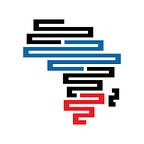Help us unveil the hidden presence of human trafficking
We’re building a living map as a resource to track human trafficking and tell stories of survivors.
By Kim Harrisberg
In June this year, the Thomson Reuters Foundation and German development agency (GIZ) brought together 35 activists, journalists, researchers and policy planners who work, or have worked, in combating human trafficking in their respective countries.
We arrived in Nairobi, Kenya, from 25 different countries and underwent a four-day comprehensive workshop where we all presented different skill sets, interests, and visions. There were voices from Djibouti, Jordan, Croatia, Tunisia, Uganda, Mauritania and more. Different contexts, backgrounds and histories alongside one uniting theme. The common aspect was that all our countries have seen the horrors of the commodification of our fellow human beings for profits.
By the end of the workshop, fuelled by site visits into Mathare informal settlement, and conversations with an anti-trafficking non-governmental organisation in Kenya, Awareness Against Human Trafficking (HAART), we were all buzzing with ideas on collaboration. It dawned on me that our greatest strength was our collective experiences from our respective countries: simultaneously unique to our contexts and yet the core underpinnings were the same. We brainstormed to build a map representative of this.
Code for Africa’s pan-African WanaData network is collaborating with us to build a “living map” — a map that will continue to grow as more testimonies, data and resources are gathered. This map will be interactive, inviting users to engage with survivor testimonies, and find resources for tackling human trafficking. As much data as possible will also be accumulated on trafficking from these countries.
Why would we build a map like this? At the heart of this map is the desire to humanise the sweeping term “trafficking”. By gathering testimonies from around the world, we hope that the same people building this map (journalists, academics, activists, policy planners, survivors) will reach out to more like them — to collate the stories of survival, to give them a human face, to fill the gaps in what we don’t yet know, to connect the dots. Perhaps most importantly, if potential victims come across this map, the testimonies and resources may be enough to even save lives.
But the world is a big place and we need your help. If you have worked in combating human trafficking, survived human trafficking, or researched human trafficking, please add your voice to this map. Help us fill all countries of the world with unheard voices of survivors, to give them a platform alongside other incredible people who have overcome this overwhelming horror.
If you are interested in contributing, please do so through this gForm: https://goo.gl/forms/OWUTKtX7xBdW4IZk1
You need a testimony from a survivor who has consented to share their story, and preferably data on trafficking and information around NGOs or organisations working to combat human trafficking. We will be working to edit testimonies and fact-check data as thoroughly as possible. We are aiming to launch the map in time for the Trust Conference in London in November. If a contributor only has a testimony, but no data, or only data but no testimony, this contribution can still be accepted to help build the map, piece by piece.
Such a far-reaching worldwide social ill can only be tackled through collaboration. The conversation around ending this human rights abuse should include every country too — none should be left out.
For more info, please contact kim@health-e.org.za
Twitter: @kimharrisberg
Code for Africa is the continent’s largest federation of civic technology and open data laboratories, with affiliate members in 10 African countries and funded projects in a further 12 countries. CfAfrica manages the $1m/year innovateAFRICA.fund and $500,000/year impactAFRICA.fund, as well as key digital democracy resources such as openAFRICA.net and GotToVote.cc.
